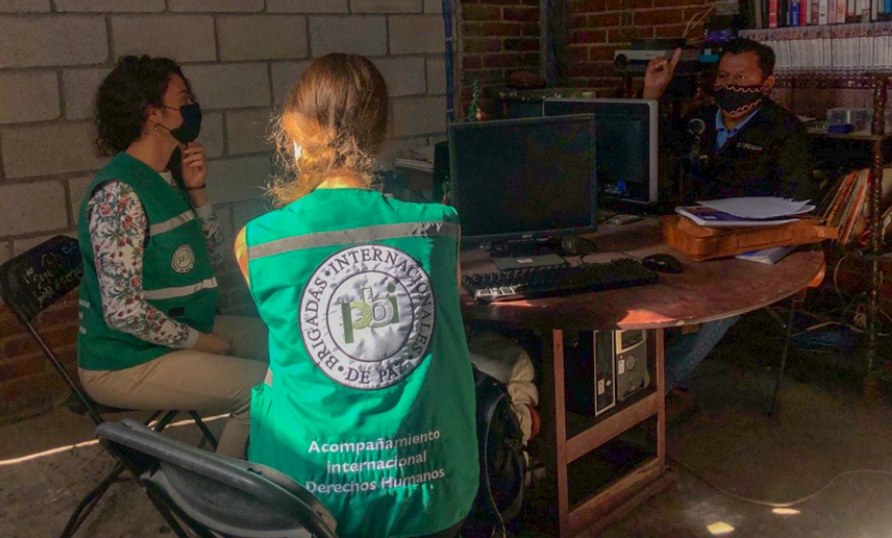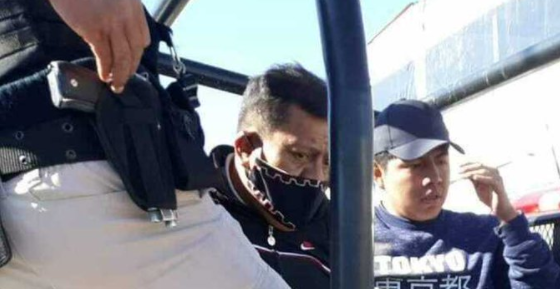
On December 30, the Peace Brigades International-Mexico Project tweeted: “Today we saw the facilities of Radio #Zacatepec in #Puebla. On several occasions, members of this community radio station have faced attacks, arrests or defamations for their work to disseminate and defend the #human rights of individuals and collectives.”

PBI-Mexico adds: “In an interview with Radio Zacatepec we were able to: Tell about the work we do. Express our concerns for the physical and emotional safety of defenders in the region. Reiterate the call to the State to guarantee the right to defend #humanrights.”

In November 2021, Reporters without Frontiers (RSF en español) tweeted: “We condemn the arbitrary detention by the municipal police of Juan C. Bonilla in Puebla of the communicators Alejandro Torres Chocolatl and Michel Torres of the Zacatepec Community Radio, who were released hours later.”

In December 2019, Pie de Pagina reported: “Members of community radio have received death threats for reporting on the industrial zone that would pollute the Metlapanapa River, which crosses through their community.” That industrial zone involves a wastewater discharge project in the Ciudad Textil Industrial Park that includes the installation of Audi and Volkswagen suppliers in that area.
The article adds:
“This radio has been operating for more than 5 years and since 2016 with a concession for social use, it was one of the first 10 radios in the country to have it after the reform in Telecommunications.
But in its history, Radio Zacatepec has been threatened and dismantled twice before they had the concession and before there was the problem of toxic waste that threatens the Metlapanapa River.
The first time they tried to dismantle Radio Zacatepec was in mid-2014.
At that time, the defenders of the territory of the radio spoke about the siege of a gas pipeline in their territory, which shortly after they would discover that it is an energy and industrial megaproject linked to the Morelos Integral Project, and the gas pipeline circulates from Puebla to Morelos.
The second time [in June 2015] they dismantled it, even when it had no concession, was much more cumbersome. According to Maria Torres’ narration, it was much more violent as they were accused of selling drugs.
Outside the radio there was an operation with hundreds of grenadiers and hundreds of police who entered to uninstall and seize the computers, microphones, and whatever they found in the facilities, of everything but drugs. That night they closed the house where the radio was located.”
In November 2019, this tweet from Cencos quotes Torres who says: “We have been victims of blackmail, even beatings. It is not fair that we defend our river and that they want to pollute us and that they want to harm us. Just as the radio belongs to the people, we belong to the people … They have threatened me with death.”

Torres with criminalized water defender Miguel López Vega and ally.
Last year, this article in Milenio highlighted the importance of community radio.
It noted: “Community radios are the new bells of the peoples that allow the defense of human rights and the territory, generate identity and allow communication in complicated times such as the COVID-19 pandemic.”
It further noted: “Some community radios operate with loudspeakers, others transmit from social networks and some more occupy the radio spectrum so that their signal reaches their entire community, in order to give messages and disseminate cultural elements.”
At this time, we also recall that Samir Flores Soberanes co-founded the community radio station Amiltzinko in 2014.
Through that platform, and as a member of the Peoples Front in Defence of Land and Water, he defended the rights of the Nahuatl peoples against the PIM gas pipeline, thermoelectric plant and river diversion megaproject.
He was murdered on February 20, 2019.
PBI-Mexico began to accompany the Peoples Front in early 2020.
Photo: Indigenous Náhuatl land and water defender Samir Flores at Radio Amiltzinko in January 2017, just two years before he was killed.

“The work of independent media is to tell the history of social struggle in the world… Not only to know what is occurring in the world, but to understand it and to derive lessons from it…” – EZLN subcommandante Marcos
